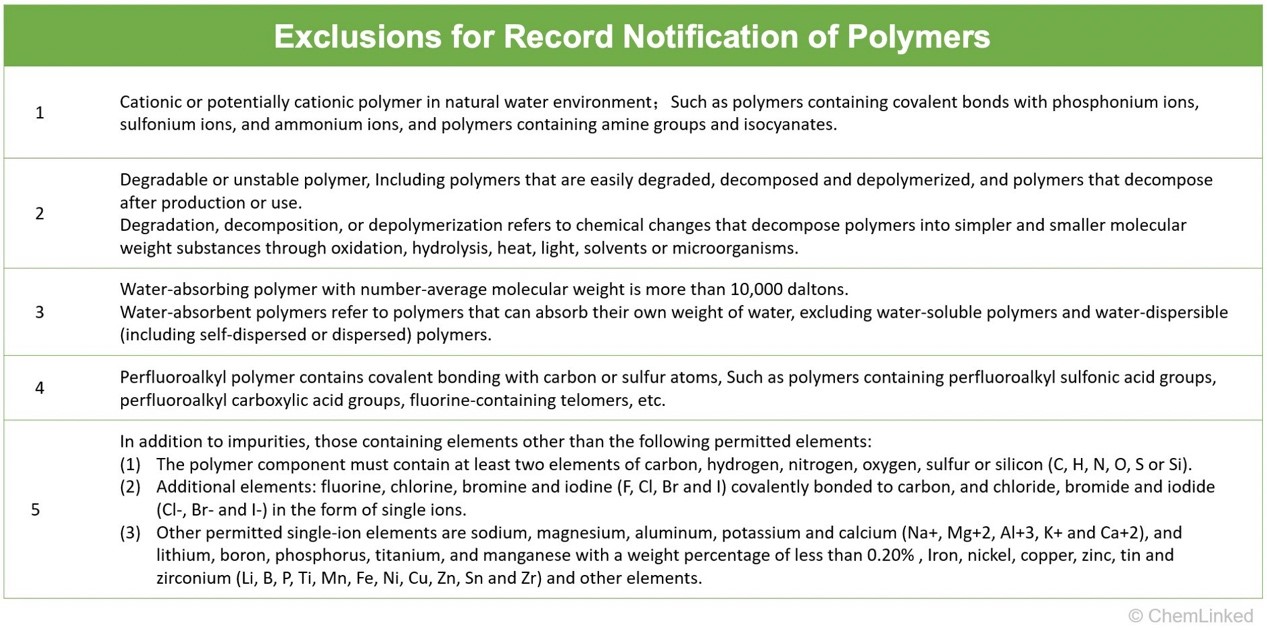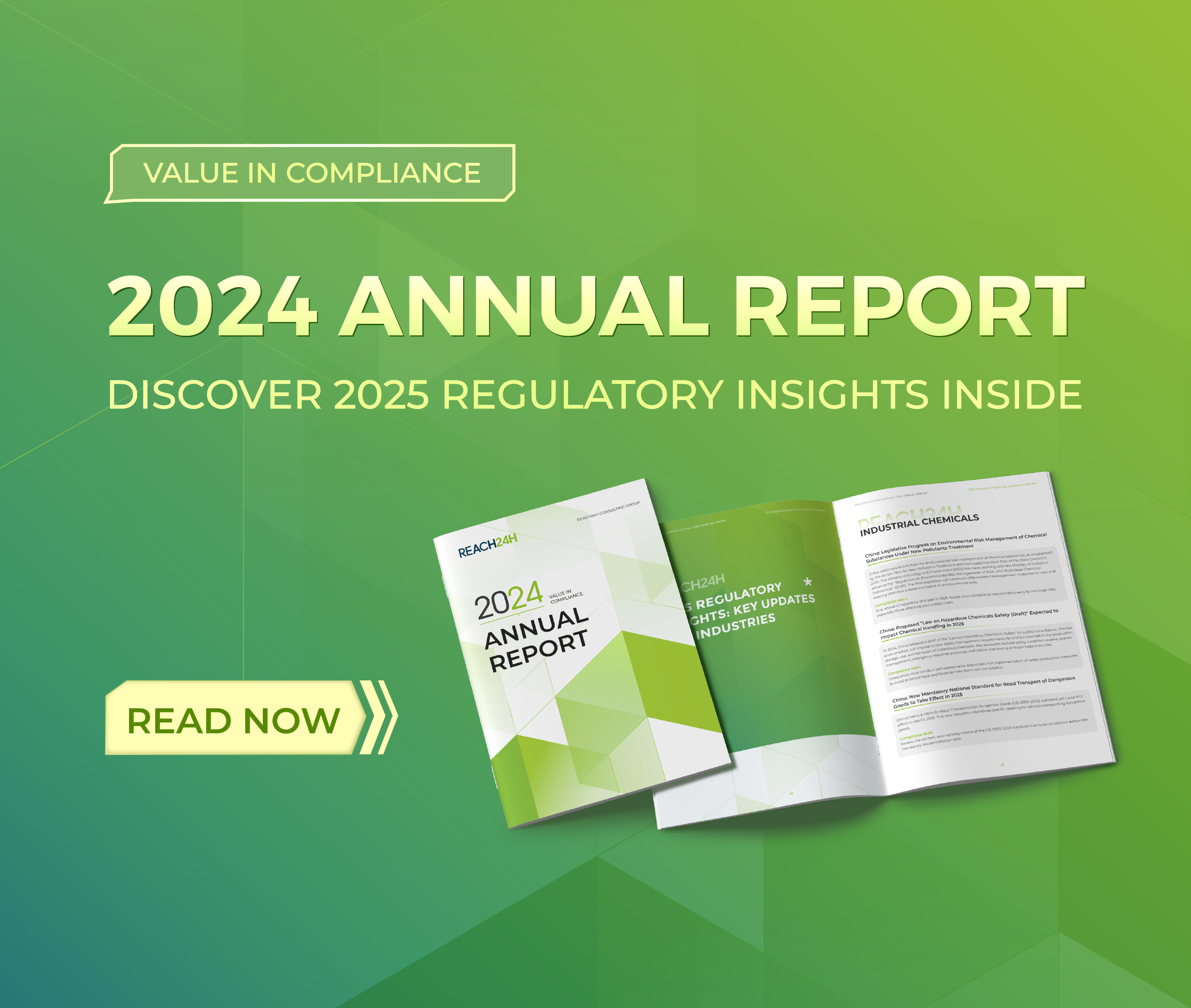How to Prove Your Polymers Are Eligible for Record Notification Under China REACH?
Almost two years have passed since the Measures of Environmental Management Registration of New Chemical Substances (MEE Order No.12, i.e. China REACH) took effect on January 1, 2021. As polymers are generally regarded as representing a low safety concern, they can benefit from exemption or reduced registration requirements under some circumstances. According to MEE Order No.12 (i.e. China REACH), polymers that meet certain criteria* can apply for record notification regardless of annual volumes. This provision has attracted widespread attention from the chemical industry.
* If a polymer meets any of the following criteria, it shall be subject to record notification (rather than simplified or regular registration), regardless of annual volumes.
|
However, there are 5 exclusions for record notification of polymers, stipulated in the Guidance on Environmental Management Registration of New Chemical Substances (hereafter referred to as the Guidance).
Enterprises are required to provide materials such as test data or literatures, illustrating that their polymers do not meet any of the 5 exclusions (illustrated one by one in the form of an attachment), to prove they are eligible for record notification. However, in practice, many enterprises encountered problems in preparing such explanatory materials, especially for water-absorption and stability of polymers.
As per the Guidance, water-absorbing polymers refer to polymers that can absorb their own weight of water. In terms of the stability of polymers, it is with the influence of water, light, heat, oxidation, solvent, or microorganism. As the Guidance does not give clear determination criteria, enterprises need to illustrate the stability of their polymers according to their own understanding. That’s really a great challenge. Enterprises that intend to determine the stability of the polymer through non-test methods are advised to combine the polymer’s structural formula and relevant literature to illustrate the polymer’s stability. For some polymers that contain more hydrophilic groups and groups with high reactivity which are easy to be degraded, it is not recommended to use non-test methods for polymer stability determination. However, for stability or water absorption tests, there’re no recommended standards prescribed in the Guidance.
Experts’ Insights
If there are no other grounds for illustration, the stability test of polymers should cover the abovementioned six factors, i.e., water, light, heat, oxidation, solvent, and microorganism. By comparing the structure and molecular weight of the polymer before and after the test, the stability of the polymer under these effects can be intuitively observed. For the water absorption test of polymers, experts from REACH24H recommend referring to the Tea-bag Method under the U.S. Toxic Substances Control Act (TSCA). In addition, enterprises can develop their own methods for water absorption tests.
Currently, based on the solid theoretical foundation and years of successful experience, REACH24H Consulting Group has developed a set of testing methods for polymers, mainly covering:
- Stability of polymers with the influence of water, light, heat, oxidation, solvent, or microorganism; and
- Water-absorbability of polymers.
By virtue of the test data and literature, REACH24H will provide adequate explanatory materials to help enterprises complete the compliance work in the application for record notification of new polymers under MEE Order No.12 (i.e. China REACH).
*Please feel free to contact us (customer@reach24h.com) if you are interested.
Reprinted from: ChemLinked
Contact Us
If you have any questions regarding the notification of new polymers, please feel free to contact us.
Tel: +86-571-87007555
Email: customer@reach24h.com
News Source: ChemLinked

REACH24H Consulting Group launched ChemLinked in 2012 as a leading service provider of comprehensive regulatory information and compliance solutions, meeting the growing demand for clear and concise regulatory advice and market intelligence in Asia, especially China.
You can register for a membership to read the latest news limitlessly every day on ChemLinked.



